How Optus scored its own World Cup goal, leaving SBS the winner
Optus boss Allen Lew is racing against the clock to salvage the telco’s reputation.
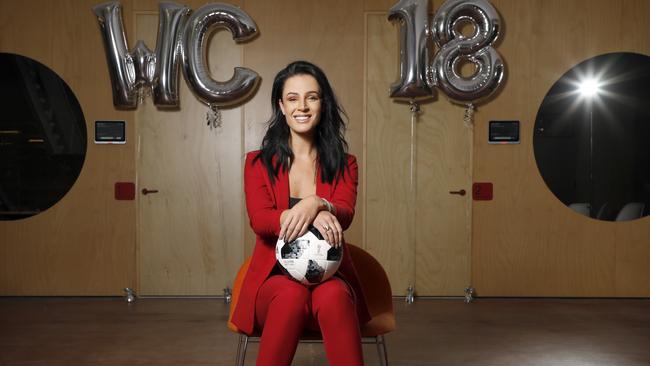
Optus boss Allen Lew is racing against the clock to salvage the telco’s reputation as a multimedia heavyweight after its plans to deliver the FIFA 2018 World Cup to Australian fans stumbled at the first whistle.
For Lew, an avid fan of the beautiful game, the World Cup was to be the linchpin of Optus’s ongoing investment in locking up as much exclusive soccer content as possible and using it to lure customers from rival networks.
The World Cup was the cherry on top for Lew after Optus recently secured the broadcast rights for the English Premier League until 2022.
It was also a test for how Australians would adapt to mobile-phone-based streaming technology for large events, given the World Cup has mostly been broadcast between SBS and the ABC for more than three decades. Optus is believed to have paid the current World Cup rights holder SBS for a sub-licensing deal that would limit the government-owned broadcaster to select matches, including Socceroos games.
The telco spared no expense, securing Channel 7 prime time sports host Mel McLaughlin to anchor its coverage, with co-hosts including former Socceroos goalkeeper Mark Schwartzer, Fox Sports special commentator Michael Zappone and former English Premier League and Newcastle Jets striker Michael Bridges. It capped it off with a lavish launch party at Sydney’s Walsh Bay last month, with attendees including Football Federation Australia boss David Gallop.
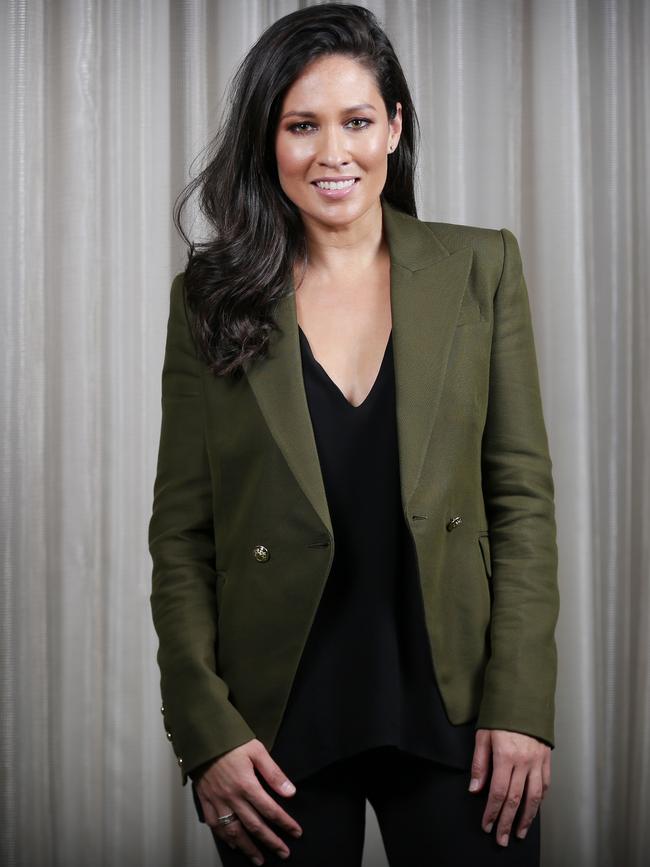
But the fiasco with the Optus Sports app has exposed the frailties of the Optus network, and it is unlikely the telco will iron out the problems affecting the app within the next 48 hours.
After a disastrous weekend of streaming drop-outs, pictures freezing and fans unable to log on, Lew wasn’t offering too many excuses as Optus buckled with a temporary deal to let SBS show games free-to-air for the next 48 hours. A chastened Lew had also drawn a rebuke from the Prime Minister who demanded answers from the telco.
But Lew wasn’t ready to throw in the towel.
“As a company we are trying to take risks and the brand is stronger than just one event over three days and we will prove to Australians that we can be a credible multimedia company,” he said.
But the words ring hollow given how big an own-goal this is for SingTel-owned Optus.
With Telstra struggling to maintain its network dominance and mobile customers increasingly comfortable with paying for premium content, Optus has missed a golden opportunity to capitalise on its content investment.
It’s not just customers who are angry. The telco will need to manage the fallout from advertisers who are concerned their brands have been dragged through the mud along with the Optus Sports app.
Compensation is more than likely on both fronts when Lew provides his latest update on the app on Wednesday. But whether it can return to the status quo and reassert its exclusive rights to the World Cup remains to be seen.
Industry sources told The Australian that Optus’s ambition may have run ahead of the capabilities of its network. The big challenge for streaming live events, as opposed to providing Netflix, is the capacity required on the network.
If the pipes aren’t wide enough there is always going to be an issue when a lot of people try to sign up at the same time. That’s certainly how things played out last Friday when a large number of new Optus Sport customers tried to log in for the first time.
Capacity constraints are generally not just confined to a single part of the network, especially when there are spikes in bandwidth demand.
If the poor performance of the Optus Sports app boils down to congestion at the network access layer then there are no quick fixes and it’s hard to see how Optus can fix and test the solutions before Lew takes to the stage Wednesday.
That leaves open the prospect of SBS picking up more games from Optus for the duration of the World Cup, which may turn out to be a mixed blessing for the public broadcaster.
Optus’s woes have in essence tripled the workload for the SBS presenting duo of Lucy Zelic and Craig Foster. Their shift can now extend to a 12-hour day when they broadcast a preview for the 4am match.
Russia wakes up at about 2pm (AEST), and SBS’s first broadcast is its 5.30pm highlights and panel program, fronted by Zelic and Foster, from SBS’s studio on Red Square. This is followed by a 7.30pm Twitter program.
SBS would then broadcast one match a day, in either the 10pm, 1am or 4am slots. The 8pm timeslot for the Australia-France game was a rare exception.
Normally, SBS would devote a one hour pre-match program if Australia was playing, and 30 minutes for other matches, but has been truncating its previews to between 15 and 20 minutes.
SBS sources said discussions between the SBS and Optus had taken place in the early hours of Monday morning, well before Prime Minister Malcolm Turnbull stepped in.
SBS had broadcast the World Cup for 32 years, sometimes sharing coverage with Nine and ABC, although it did broadcast by itself the entire World Cup — 64 matches in 30 days — in 1994, 1998, 2006 and 2014.
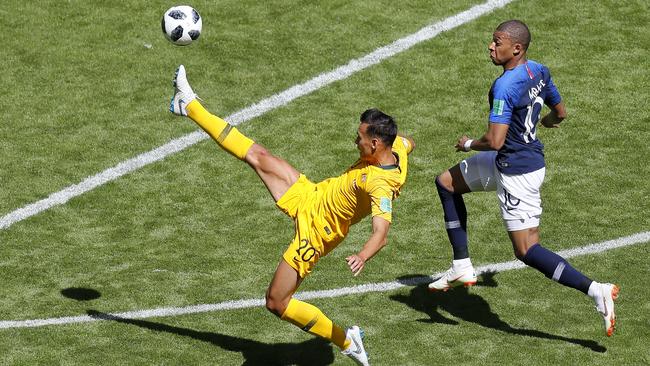
After winning the rights to the 2014, 2018 and 2022 tournaments, SBS sub-licensed all 64 games to Optus in the $8m deal, electing to show 25 of them to meet the criteria for anti-siphoning rules.
SBS would show 25 matches, plus highlights, including all Australian group games, two quarter-finals, both semi-finals and the final, while the rest would be exclusive to Optus. Or at least that was the plan.
An SBS spokesman said the broadcaster wanted as many Australians as possible “to be able to access to the games and we are doing what we can”.
“We have assurances from Optus they are doing everything they possibly can to correct the tech issues,” she added.
Those assurances won’t amount to much if Optus isn’t able to show a meaningful improvement in the performance of its app. Having staked its claim as the home of soccer in Australia, Optus will struggle to erase public perceptions that it got too big for its boots by taking on the World Cup.
Live-streaming marquee events is challenging, but it’s clearly where things are headed. Global content delivery network and cloud service provider Akamai recently forecast that up to 500 million viewers will be live-streaming sports online by 2020. The likes of ESPN, Fox and NBC offer live-streaming sports apps. Fox’s Super Bowl live stream last year averaged 1.72 million viewers a minute.
Streaming sports is no flash in the pan, but the capacity demands it puts on overworked networks are immense. Optus was clearly unprepared for what it was getting into. It may yet bounce back from here but its media-driven strategy has been severely dented.

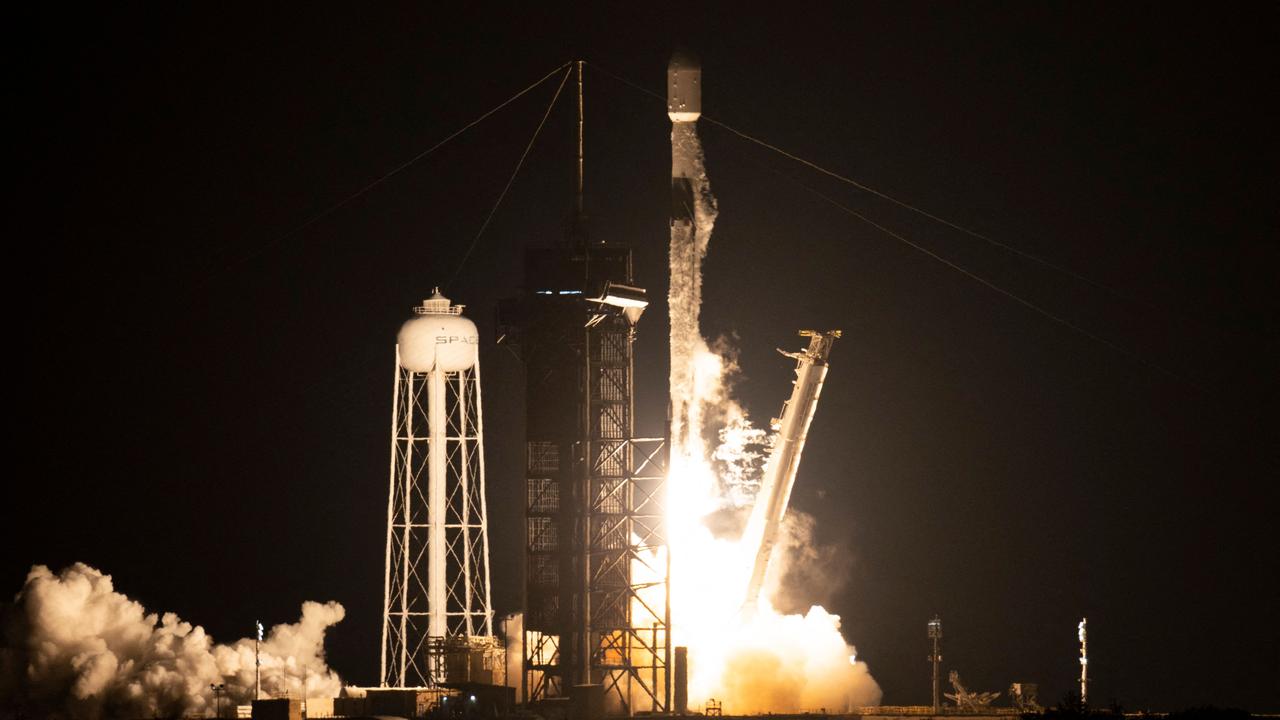
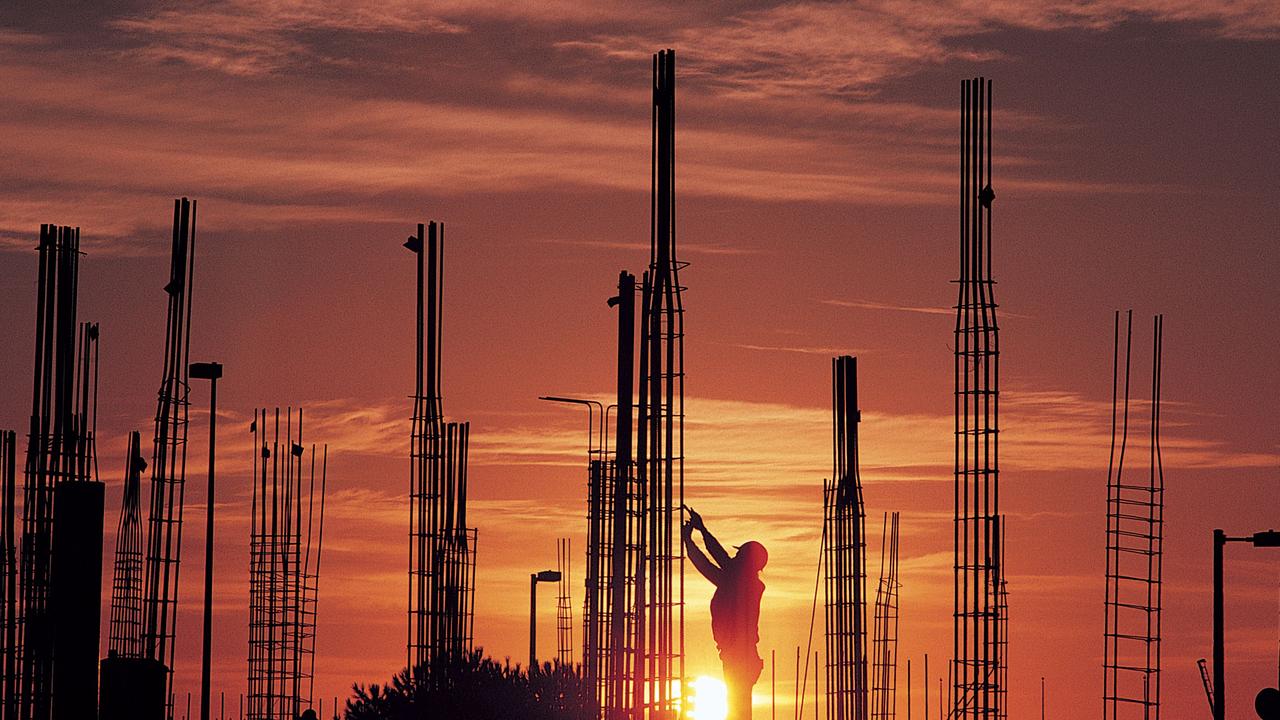
To join the conversation, please log in. Don't have an account? Register
Join the conversation, you are commenting as Logout